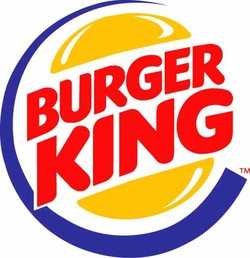American Consortium Challenges Convention
Special 04.01.23 Parody Edition: In a surprising, if not intuitively sound move certain to occasion acrimony among the world’s established producers of Sustainable Aviation Fuels (SAF) a consortium comprising McDonald’s, Burger King, and Wendy’s announced on 01 April 2023 that it had entered into a partnership with Washington D.C.-based Alder Fuels to create and market a new brand of SAF from biomass deriving of the aforementioned fast-food giants’ collective greases and unsold food-stuffs.

Prior to submission to the Federal Aviation Administration (FAA) for technical certification, the new product, which will be sold under the brand name Cholestol, will undergo evaluation and testing with McDonald Aviation LLC, McDonald’s Oak Brook, Illinois-based corporate flight department.
After the fashion of recent tests performed by Universal Hydrogen, McDonald Aviation’s Gulfstream G550, registration N1967M, will commence a spring 2024 flight-testing regimen with its starboard engine operating on a 50/50 blend of Cholestol and conventional petroleum jet fuel.
In an email statement, McDonald Aviation chief pilot Buck Jones stated: “For decades, McDonald’s has contributed to humanity’s wellbeing by promoting healthful living and environmental stewardship. The pilots, aircraft maintainers, and support staff of McDonald Aviation look forward to vetting and proving Cholestol, and in so doing, perpetuating the McDonald’s tradition of proudly serving billions-upon-billions.”
The stewardship to which Mr. Jones referred is well documented. In addition to charitable endeavors such as the Ronald McDonald Houses found in most major U.S. cities and upstate New York’s Hamburglar White Collar Minimum Security Prison, McDonald’s has consistently and conscientiously given back to the communities over which its golden arches fly like gilded and claret banners. In the 1970s and ‘80s, McDonald’s Styrofoam packaging saved the lives of over three-hundred shipwrecked mariners who clung to open-ocean accretions of Big Mac and Quarter Pounder cartons—often for days on end—while search efforts were mustered and carried out. In 1985, a merchant mariner gone accidentally over the rail of an APL container ship survived nine-days atop a makeshift flotilla of McDLT containers. Upon being rescued, the exhausted, emaciated sailor remarked: “I don’t know what a McDLT is, but I know the smell of the things repels sharks.”
A Wendy’s executive could not be reached for comment.

Speaking to the subject of Cholestol’s imminent testing, Burger King CEO Josè E. Cil remarked: “What do you mean McDonald’s has a flight department?! Why the hell don’t we have a flight-department? Are we always going to live in the shadow of that damnable clown?!”
Alder Fuels president and CEO Bryan Andersen disclosed to Aero-News Network that early discussions of the Cholestol enterprise had included Taco Bell. Mr. Andersen confided, however, that the biomass collected from Taco Bell restaurants had proved excessively volatile, and, during preliminary testing, had destroyed at least six TFE-731 turbofan engines.
“The stuff was just too combustible,” Mr. Andersen rued. “Much as it does in the human being, the Taco Bell biomass sustained normal operation for a period of thirty-or-so minutes, after which burner-can hot-spotting ensued, ultimately resulting in catastrophic hot-section failure.”
Asked whether competition from veteran SAF producers such as Neste was of concern to the Cholestol endeavor, McDonald’s CEO Chris Kempczinski replied: “The iced-tea company?”
Whether or not the nascent consortium of American fast-food concerns will succeed in the emergent SAF sector remains to be seen. It can be stated with certainty, however, that the APU’s emergence as an olfactory delight is imminent.
FMI: www.honeywelldippingsauce.com
 Classic Aero-TV: VerdeGo Debuts VH-3 Hybrid-Electric Powerplant
Classic Aero-TV: VerdeGo Debuts VH-3 Hybrid-Electric Powerplant NTSB Prelim: Grumman American Avn. Corp. AA-5B
NTSB Prelim: Grumman American Avn. Corp. AA-5B ANN's Daily Aero-Linx (12.02.25)
ANN's Daily Aero-Linx (12.02.25) Aero-News: Quote of the Day (12.02.25)
Aero-News: Quote of the Day (12.02.25) Aero-News: Quote of the Day (12.03.25)
Aero-News: Quote of the Day (12.03.25)




